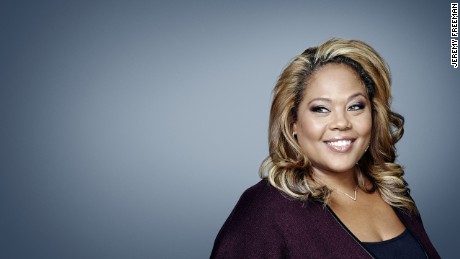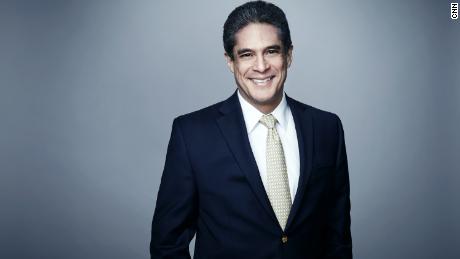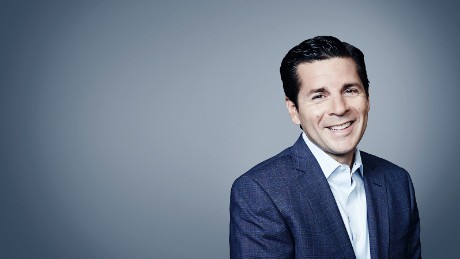Story highlights
- Republican Party convention took place this week in Cleveland
- Speakers on the final night included Donald and Ivanka Trump
(CNN)CNN Opinion contributors offer their takes on the final day of the Republican Party convention in Cleveland, Donald Trump's speech, and what this week has meant for the Republican Party. The views expressed are the writers' own.
David Gergen: A vision for the Apocalypse?
Give credit where it is due: Donald Trump delivered the best constructed and best rhetorical speech of his campaign as he accepted the GOP nomination Thursday night. Moreover, he must have taken great pride in his children, two of whom -- Donald Jr. and Ivanka -- gave the best speeches of the entire gathering. Father and children together rescued a convention that had many stumbles.
But Trump's acceptance address was also deeply disturbing. This was my 20th political convention, and I cannot remember one where the nominee was so angry, divisive and resentful.
Repeatedly he whipped his audience into a frenzy with charges that were misleading (for example, he is right that Americans feel less safe than they should but he painted an apocalyptic picture of crime in the streets when in truth, we are witnessing a rise of crime from historic lows).
Trump said up front that he was humbled and he called for generosity, but then continually boasted about his prowess and launched harsh, relentless attacks on his foes. He made a long litany of promises but mostly avoided telling us how he would fulfill them. These are not the qualities of great presidents.
Earlier in the week, his campaign manager, Paul Manafort, said that in reviewing past acceptance addresses, Trump focused most on Richard Nixon's acceptance in 1968, when RN famously presented himself as the law and order candidate and proclaimed himself champion of "forgotten Americans." Put aside for a moment the oddness of choosing that role model.
What is truly ironic is that Nixon, considered so dark, spoke that night with humility, generosity and brightness of spirit. He drew deeply upon American history and chose Washington and Lincoln as role models. Biographer Evan Thomas has written that Nixon in that acceptance was also sentimental and uplifting.
Trump exuded strength -- and occasional compassion -- but mostly he was angry and harsh. As a candidate of law and order, Nixon thrust forward an iron fist but clothed it in a velvet glove. Trump showed the fist and threw away the glove.
David Gergen is a senior political analyst for CNN and has been a White House adviser to four presidents. A graduate of Harvard Law School, he is a professor of public service and co-director of the Center for Public Leadership at the Harvard Kennedy School. Follow him on Twitter: @david_gergen. The opinions expressed in this commentary are his.
S.E. Cupp: Trump finally shows discipline
On Thursday night, Donald J. Trump finally proved he has the discipline so many believed he lacks, sticking to script and reading his acceptance address as it was written. Even when a Code Pink protester interrupted, Trump remarkably resisted the opportunity to veer off page.
Trump's address followed a compelling speech from his daughter, Ivanka, and other speakers who offered strong character defenses of Trump the business man, the family man and the so-called common man. By -- for once -- landing the plane successfully, instead of careening off toward a mountain peak, he saved what could have been a rough Republican National Convention that highlighted, at times, the division within the party, Trump's campaign disorganization and Trump's lack of political insight.
I'm doubtful the Trumpvention won new voters, but because he avoided the self-sabotage he has seemed to favor, Trump can convincingly call this convention a success.
SE Cupp is the author of "Losing Our Religion: The Liberal Media's Attack on Christianity," co-author of "Why You're Wrong About the Right" and a columnist at the New York Daily News.
Jeffrey Toobin: A dark vision of America
No presidential candidate in modern history has presented such a dark vision of America as Donald Trump did on Thursday night. His America was a dangerous and failing place, beset by crime and terrorism. It used to be a truism of American politics that optimism pays -- that a promise of a bright future was mandatory for success. Trump's candidacy will test if that's still true.
The other most striking thing about his speech was the near total absence of proposals to fix any of the problems he described. He supports law and order -- but says nothing about how he is going to reduce crime.
The same with ISIS. He says: "We're going to win. We're going to win fast."
But how? I guess if he wins, we'll find out next January.
Jeffrey Toobin is CNN's senior legal analyst and author of "The Oath: The Obama White House and the Supreme Court."
Tara Setmayer: A departure from traditional GOP principles
After four chaotic convention days in Cleveland that included scandals, snubs and awkward air kisses, the GOP emerges still unable to fully unify behind Trump. With Republican luminaries noticeably absent and a line-up of speakers that were far from the star-studded rousing affair Trump initially promised, there were more missteps and drama than highlights.
Donald Trump's acceptance speech felt more like a longwinded State of the Union address reminiscent of Bill Clinton's infamous 90 minute one in 2000. But there were some poignant moments that will resonate with traditionally Democratic constituencies who have felt ignored and left behind by the global economy, particularly union workers in rust belt states.
Trump's attack on Hillary's Clinton's failed record and untrustworthiness is clearly a theme he will carry through to Election Day. Trump's twist on Clinton's "I'm with Her" slogan to his own "I'm with you" version is also a potentially very effective line.
Many aspects of the convention departed from traditional Republican principles given the speakers line-up that included quite a few Democrats. But with mentions of fair trade instead of free trade, economic populism, and a foreign policy that includes conditional support for our NATO allies, the new era of Donald Trump's Republican party has been ushered in and it's not one that many of us are willing to support.
Tara Setmayer is former communications director for Rep. Dana Rohrabacher, R-California, and a CNN political commentator. Follow her on Twitter @tarasetmayer.
Raul Reyes: A mismanaged convention
Donald Trump's convention was grossly mismanaged and lacking in cohesion.
Each night, a distraction drowned out any message of mainstream appeal and unity from the Republican Party. Monday a floor fight over rules, and allegations of plagiarism; Tuesday, the ugly spectacle of Chris Christie goading the convention crowd as it shouted, "Lock her up!" (Hillary Clinton, that is); Wednesday, Ted Cruz went rogue and refused to grant Trump his endorsement.
The national convention is an unparalleled opportunity for the candidate and the party to present their vision for the country, free of the pointed questions of debates and press interviews. Here was the chance for Trump and the GOP to put their best foot forward, on their own terms ¬-- and they blew it.
Save for a few positive moments, such as the Trump children speaking about their dad, this convention veered off course regularly, it's intended "themes" lost amid the nasty bits, like Dr. Ben Carson comparing Hillary Clinton to Lucifer. Make America One Again night featured Sheriff Joe Arpaio, who has been cited for racial profiling against Latinos. Fellow billionaires Peter Thiel and Tom Barrack attested to Trump's character. And to cap it off, after Ivanka Trump's loving tribute to her father led into an hour of Trump shouting and raging.
"I will restore law and order to our country!" thundered the candidate whose companies have been involved in at least 3,500 legal actions in federal and state courts during the past three decades. Trump promised to defeat ISIS, get Americans working, stop illegal immigration, even to fix the TSA, but he offered no clues as to how.
In giving the most important speech of his life so far, Trump sounded like an angry Rudy Giuliani, ending the convention on a hateful note.
Raul A. Reyes, an attorney and member of the USA Today board of contributors, writes frequently for CNN Opinion. Follow him on Twitter @RaulAReyes. The opinions expressed in this commentary are his.
Eric Liu: Decision time for America's citizens
On Thursday night came the biggest shock of the entire Republican convention: Donald Trump was boring. Flat. He went on too long and by his second hour he was sweating like Nixon.
Stuck behind a teleprompter, reading in a slow monotone, he could not truly rouse the crowd, who gave low-energy cheers and boos in response to his taunts and attacks. When he growled his money line ŌĆö "I am your voice" ŌĆö there was no lift, no surge of passion.
But put aside his performance issues. Put aside the emptiness of his promises ("Believe me." "Things will change right now." "We can solve this problem so quickly."). What was striking was his tone: pessimistic, angry, sneeringly and unsmilingly fascistic. In a word: un-American.
It started with Ivanka's testimonial to her father, which had the ripe stench of the Roman Empire: He is sacrificing greatly to save the Republic, she declared, because he is "the People's Champion." It continued with Trump's fear-mongering about crime, and his promise to "defeat the barbarians." It peaked with his take on corruption in politics: "I alone can fix it."
Of course, the natural response of anyone who ever took civics is that he alone cannot fix it -- that there is a Congress and a Supreme Court and millions of citizens who will have a say. But that's the problem, isn't it? We have this tin pot, would-be dictator as a possible president because for a generation, too few Americans have in fact taken civics. Or practiced it.
So the circus of this convention is over. Now it's time for American citizens to decide whether we will save our Republic -- or let it go the way of Rome.
Eric Liu is founder of Citizen University and executive director of the Aspen Institute Citizenship & American Identity Program. His books include "A Chinaman's Chance" and "The Gardens of Democracy." He was a White House speechwriter and policy adviser for President Bill Clinton. Follow him on Twitter: @ericpliu.
Buck Sexton: GOP unity still uncertain
The Republican Party convention definitely fired up Trump supporters, so if the goal was to generate enthusiasm from the Donald's faithful, that was achieved with gusto. If, however, the ultimate purpose was to unite a Republican Party that could be on the verge of existential rupture, success remains unclear.
To be sure, there were high points for the Trump camp, including compelling speeches from Ivanka and Donald Jr., as well as a very competent address from recently announced vice presidential pick Governor Mike Pence.
On the other side of the ledger -- and perhaps the most memorable moment of the week -- was the Ted Cruz non-endorsement speech. Many conservatives, including prominent members of the "Never Trump" movement, have praised it as a brave moment that could keep conservatism alive beyond the 2016 election. But for those who have signed on to support Trump, whether with enthusiasm or exasperation, Cruz's evasive, lawyerly wording was self-promotion dressed up as principled dissent.
We will have to wait until the Democratic convention finishes up next week to really gauge the state of GOP unity going into the general. While the Republican Party is still undergoing some sectarian squabbles, it may well be that nothing coagulates the Republican faithful like a long lineup of Hillary supporters, anchored by Madame Secretary herself.
Buck Sexton is a political commentator for CNN and host of "The Buck Sexton Show" on TheBlaze. He was previously a CIA counterterrorism analyst.
Felix Sanchez: Trump veers toward hate speech
Donald Trump's presidential nomination acceptance speech sounded like this to me: "My family is not your familia, and your familia is certainly not part of my family. In fact, I am so certain of it that I am going to build a magnificent and gorgeous border wall to keep your ilk out. Yes, you -- the Latinos, the criminals, the rapists the scum of the earth. I will unify our white culture and start an internecine war between African Americans and Latinos by talking about Americans First. I will Make America White Again, believe me."
In my humble opinion, this talk is music to white supremacists' ears. To those with brown skin -- Latinos and Muslims -- it sounded like hate speech. We are the new Willy Horton of this election; we are the wedge issue that will turn out bigoted voters, right-wingers and the old moral majority with dog whistle lines like: "We cannot afford to be so politically correct any more," and "I only want to admit individuals into our country who will support our values and love our people."
It's clear that brown immigrants will no longer be welcomed, only white immigrants like Melania.
Felix Sanchez is chairman and co-founder of the National Hispanic Foundation for the Arts.
Dean Obeidallah: A great convention for Clinton
If you were a Democrat, the 2016 GOP Convention could not have gone any better. The headlines after the first and second night of the convention had nothing to do with Donald Trump's proposals or even Hillary Clinton. Rather it was about Melania-gate -- and the plagiarized extracts of the speech she delivered.
And just when that issue finally died down, in came Ted Cruz. Yep, the man Democrats love to hate was the toast of Democrats nationwide come Thursday morning as the headlines and cable news world was abuzz with his speech where he defiantly refused to endorse Trump. Cruz even gave another speech Thursday morning sucking up more of the airtime. So again the GOP's hope of a well-crafted message to help Trump was lost for another full day.
Then came Trump's speech (or more precisely yell-a-thon) on Thursday. (Has anyone ever been yelled at for that long before?!) Yes, some of the speech was effective, especially in appealing to his base. But it was nothing we hadn't heard before. And given that Hillary Clinton is expected to announce her vice presidential candidate Friday, the media will only give Trump a short window where his message may be heard.
Overall the RNC could not have gone better for Clinton. The question is, will she return the favor next week to Trump or will the Democrats actually capitalize on the media coverage?
Dean Obeidallah, a former attorney, is the host of SiriusXM's weekly program "The Dean Obeidallah Show," a columnist for The Daily Beast and editor of the politics blog The Dean's Report. Follow him on Twitter: @TheDeansreport.
Ruth Ben-Ghiat: Trump's strongman speech
It's a trick used by repressive politicians throughout history: Depict the country as under siege by criminals and foreigners, riddled with crime and taken advantage of by other nations. Propose yourself as the strongman who alone can end this state of crisis and bring back peace and unity.
As the closing evening of the Republican convention showed, much of the justification for Trump's candidacy rests on this tired playbook. Speakers competed to paint doomsday scenarios. "We are at a crossroads, and our first priority must be saving our nation," said Jerry Falwell Jr., in a typical rant.
All of this emergency broadcasting warmed up the crowd for Trump's authoritarian pronouncements. "The crime and violence that today afflicts our nation will soon come to an end. Beginning on January 20, 2017, safety will be restored," he warned early in his speech.
Trump made it clear that he won't be addressing the leading feature of American crime and violence: Easy access to guns. He'll focus elsewhere. Crisis-mongering has always gone hand in hand with scapegoating. "Make America One Again" was the GOP's chosen theme of the night. Anyone who has followed Trump's consistent racist messaging against blacks, Hispanics, Muslims and Jews can deduce who will be excluded from the vision of unity outlined at this convention.
Ruth Ben-Ghiat is a professor of history and Italian studies at New York University. Her latest book is "Italian Fascism's Empire Cinema."





































































































































































































































